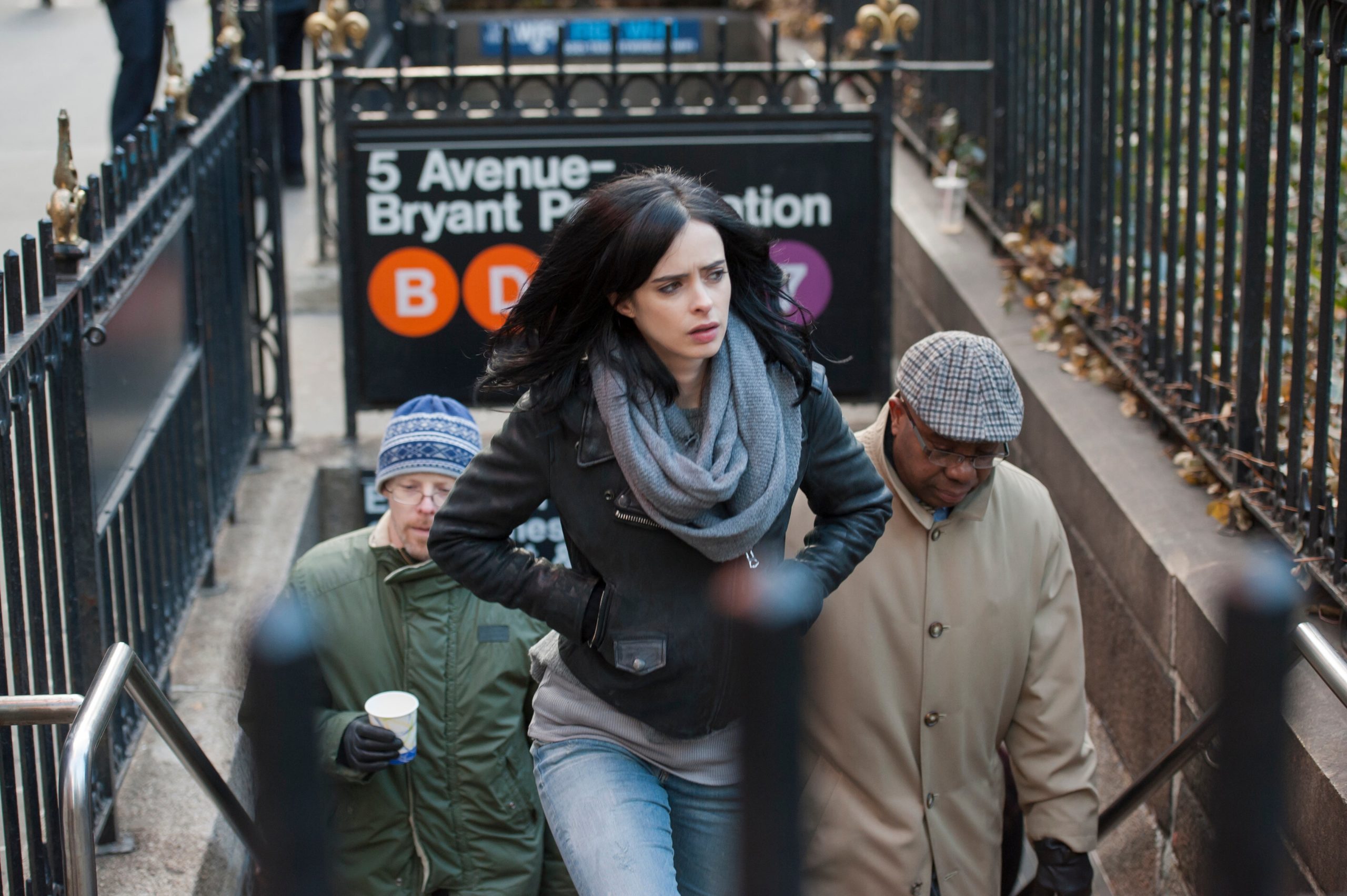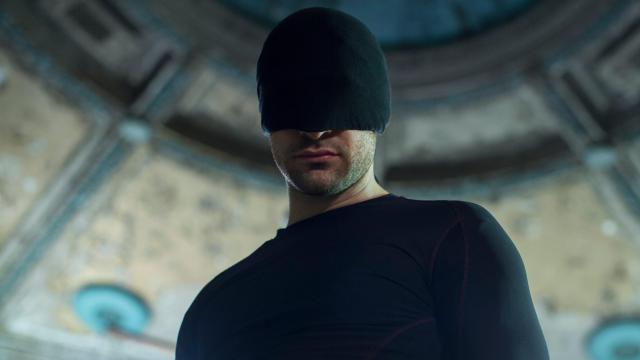In what can only be attributed to the collective amnesia that the internet chooses to engage in every few months about pop cultural happenings from less than a decade ago, Daredevil season one showrunner Steven DeKnight has waded into the latest round of conversations about whether the Netflix series is “technically” part of the MCU. Let’s go over this again, shall we?
Amid rather believable speculation that Charlie Cox’s Matt Murdock is set to appear in Sony and Marvel’s upcoming Spider-Man: No Way Home, DeKnight took to his Twitter account this week after fans began asking him to comment about whether the events of the Netflix show are considered current MCU canon. DeKnight was quite succinct and direct with his statement.
No idea! https://t.co/rK63dZxpRN
— Steven DeKnight (@stevendeknight) December 6, 2021
One could easily read into and run with DeKnight’s comment as indicating that Daredevil and the rest of the live-action shows Marvel and Netflix developed together were never really as connected to the world of Marvel’s films and other episodic series as one might have (reasonably) believed them to be. One probably shouldn’t, though, because the idea of the Netflix MCU shows somehow being completely separate from the rest of the modern Marvel machine seems to be rooted in a misunderstanding within fandom about how interconnected cinematic universes and corporate in-fighting works. One of the main reasons that people sometimes think that Daredevil, Jessica Jones, Luke Cage, Iron Fist, and The Punisher aren’t “real” MCU shows is because none of them spent all that much time acknowledging the world outside of their respective chunks of New York City — key word here being “much.”
In “AKA 99 Friends,” the fourth episode of Jessica Jones’ first season, Jessica finds herself being held at gunpoint by a jewellery designer who, earlier in the episode, had hired the private investigator to look into her husband who she suspected of cheating. After revealing that the job was all a ruse designed to lure Jessica into a trap, the designer explains how she first began hating “gifted” (read: superpowered) people following the “incident” in NYC that led to her mother’s death. Though neither Jessica nor the designer explicitly say “remember that time the Avengers saved the world by fighting an alien invasion focused on Manhattan?”, everything about their conversation comes across as Jessica Jones’ roundabout way of referencing the events of the first Avengers film — which she and the rest of the Defenders presumably lived through. That was a running issue across all of the shows.
Looking back at the Netflix/Marvel shows, their hesitance to lay down more concrete ties to the films looks and feels like the result of a number of complicated things happening simultaneously. On the one hand, the creative teams behind each of those shows prioritised the fleshing out of their own respective worlds and characters. Whatever plots that might have brought the Defenders face-to-face with the folks from SHIELD or Stark Tower would have undoubtedly taken away from the worldbuilding and character-driven plot developments that Daredevil and the other shows used to make street level NYC feel like a vibrant, lived-in place.

There’s no denying that, in the years following the initial announcement of the Netflix and Marvel partnership, both studios’ feelings about the endeavour shifted in important ways that were tied to the series’ success, money, and IP rights. By all accounts, Netflix’s Marvel shows (aside from Iron Fist) were largely hits with fans and critics alike, and they were consistently able to drive and sustain impressive levels of hype as their multiple seasons released. By the time Netflix began cancelling the Marvel shows, however, the streaming landscape had become a much more competitive place, as various studios grew more serious about launching their own digital platforms and fully owning the rights to the content they produced. This seems to be part of the reason that Marvel Studios shut Marvel Television down in 2019 just months after announcing the streaming service that would eventually become known as Disney+. The production company that brought you WandaVision rising from the corporate ashes of the production company that brought you Inhumans (and the Netflix shows) may be a bit mind-boggling, but it doesn’t exactly invalidate that some of those projects were definitely meant to be understood as taking place in the same world.
Unlike Legion, whose being rooted in the world of the X-Men meant that it was legally required to exist outside of the Marvel Studio’s universe, the distance between the Netflix shows and the MCU feels more like the result of a sensible decision to hedge that was made years ago, and is now catching up with the studios in the present day. Pre-multiverse MCU, holding the Netflix MCU at arms length always left Marvel the option to simply say “haha, jk” if and when those series took such a bad term that the studio no longer wanted to be associated with them. Instead, though, the series were mostly quite solid, and years of Marvel playing coy has led to a situation now where offhanded tweets from industry figures like James Gunn and DeKnight become the centrepieces of entire news cycles.
As potentially messy as Hollywood’s rush to bring superhero-filled multiverses to the screen is, multiverses as a concept are beyond old hat to the comic book fans who’ve been obsessively following all these franchises’ developments. The truth is that, lovely as a proper explanation would be, Marvel really doesn’t have to spell much of anything out if it decides to bring the Defenders back, because it’s literally the arbiter of their reality, and the film company can do whatever it wants with them.
All of Marvel’s Netflix shows are currently streaming on Netflix, and Spider-Man: No Way Home hits theatres on December 16.
